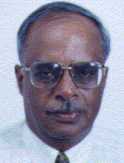KNOWLEDGE NETWORKS FOR SUSTAINABLE DEVELOPMENT

R.Sadananda
Asian Institute of Technology
Bangkok, Thailand
Abstract
The Agenda 21 declarations during the Earth Summit of 1992,
followed by the recent declarations at Johannesburg make the
movement of Sustainable Development a truly a global one.
The Rio de Janeiro meet outlines various aspects of the Sustainability
of our planet, with emphasis on the role of Information and
Decision-making. Although the issue of sustainable development
has been in discussion in various platforms for decades before,
such declarations add additional dimensions and help mobilize
resources - financial as well as ideological. A number of
initiatives have followed especially at the international
levels. A great deal of data is being collected and databases
are pervading. Most of these pertain to the environment and
natural resources.
Sustainability involves immediate and long-term perspective,
as well as local and global perspectives at the same time.
These perspectives tend to come in conflict due to diversity
of the world in terms of geography, history, culture, language
and great disparities in wealth distribution. It is our contention
that physical Sustainability is closely linked to the Sustainability
of the knowledge, which grows as a network of beliefs, thoughts
and ideas of people of current generation, accumulated from
the past and possibly the projections to the future. Therefore
such a network is a live process, involving growth, negotiation
and conflict resolutions. In a general and at a political
level the Kyoto Convention and Protocol, and the like outline
areas for possible negotiation and conflict resolution for
a framework to face the challenges of climate change and possible
underlying causes. An important issue is poverty and prosperity.
It is an age-old issue, but now increasingly seen as an integral
part of an understanding of sustainable development.
In this presentation let us look at the issue of sustainability
from a computational point of view. We may not have an agreed
formal definition of Sustainable Development. Decades ago
formal models were developed such as club of Rome, which offered
insights on the limits to growth, although one could say their
successes were limited by a, among others, process of overselling.
It may be seen as interaction between various agents involved
each of them with a set of beliefs and goals to accomplish.
Given the convergence of interests of peoples of the world
towards a common objective of sustainable development to maintain
and to foster the diversity of worldviews that form the ingredients
of the richness of the world is a great challenge. In the
absence of a grand unifying conceptual framework the knowledge
network model should be able to bring out issues, which are
not obvious and even likely to be counterintuitive.
Biography
R. Sadananda is a professor of Computer Science at the Asian
Institute of Technology, Bangkok, Thailand and has held academic
positions in University of Texas, USA, Sophia University,
Japan, Curtin University in Australia, Technical University
in Hamburg and Universities in India where he graduated. His
academic interests center on Artificial Intelligence, but
his research areas span a wider spectrum. They include Self-Organization
Schemes, Telemedicine, and Computing for Sustainable Development,
and Strategies for Computer Science Education. Professor Sadananda
has held senior academic administrative positions. He has
served on the Board of the Asian Institute of Technology and
in Academic Committees of other Institutes

